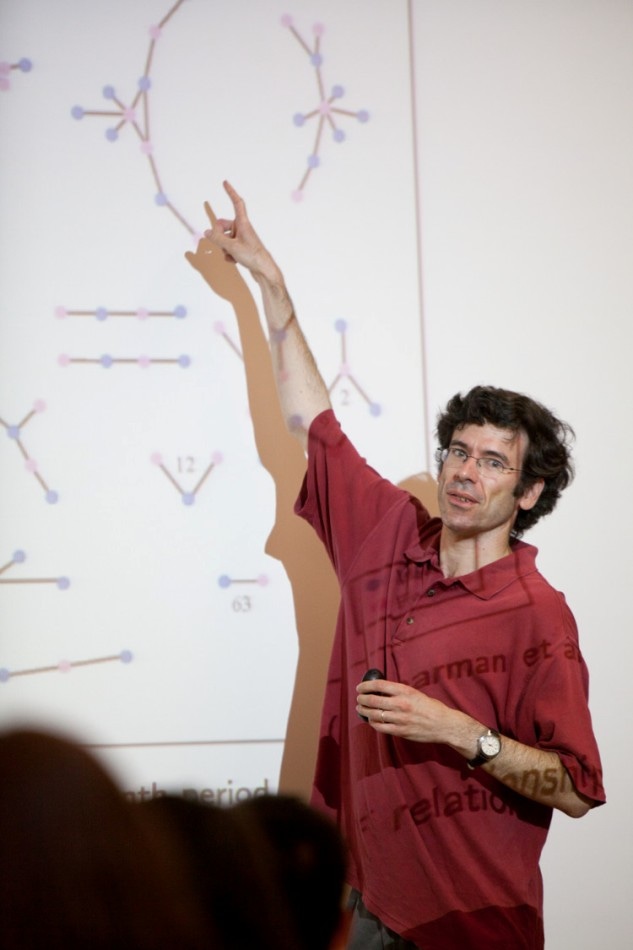Jun 16 2017
When scholars explore new ideas, it seems instinctive to share their thinking. Last year computer science professors Joseph Halpern and Bart Selman became co-principal investigators for a nationwide project to ensure that robots and artificial intelligences (AIs) will act in ways beneficial to humans.
 Jon Kleinberg, the Tisch University Professor of Computer Science, speaks to a crowd of students and visitors as part of the course Ethical and Social Issues in AI. (Credit: Lindsay France/University Photography)
Jon Kleinberg, the Tisch University Professor of Computer Science, speaks to a crowd of students and visitors as part of the course Ethical and Social Issues in AI. (Credit: Lindsay France/University Photography)
“We thought we should get undergrads involved in thinking about these ideas,” Selman said. Thus was born a new course, CS 4732, Ethical and Social Issues in AI, about how robots and artificial intelligences may change our world, and what we ought to be doing about it. “These undergrads may be directly involved in developing the software behind these systems,” Selman added, noting that many may go on to jobs with Google, Tesla and other major players.
Every Monday night last semester 25 students attended a lecture in Olin Hall, then adjourned to an upstairs classroom for a spirited discussion of the subject. The lecturers represented a wide range of expertise in the Cornell computer science faculty, along with a couple of guest speakers from other institutions, discussing such matters as what jobs may be taken over by robots, how human bias may creep into decisions made by computers, how we might be disturbed if robots look and act too human, and how AIs may handle life-or-death decisions.
The lectures were open to the public, and the students were surrounded by audiences that have included engineering students and faculty, faculty members from the ILR School and once Cornell’s new president, Martha E. Pollack, whose academic background includes research in artificial intelligence.
The course was so popular that organizers had to limit the number of students admitted, asking applicants to submit a paragraph explaining why they wanted to take the course. Eventually there was a lottery.
The course may not be repeated next year, the organizers said, as Halpern will be on sabbatical. One of the lecturers, Karen Levy, plans to offer a course on legal issues involving AI.